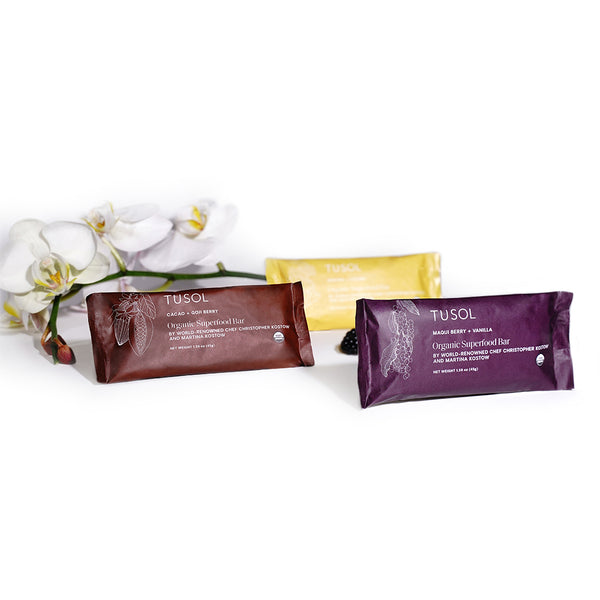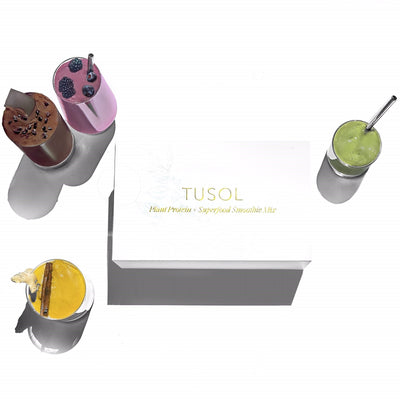As the weather starts to change, it's more important than ever to focus on supporting your immune system so you can feel healthy and energized throughout the Holiday Season.
By following these 3 daily research-backed practices, you'll be well on your way to improving your body's natural immune response -- and they truly couldn't be easier to do.
1. Eat Nutrient-Dense Foods
Prebiotics: Our microbiome is the site of a large amount of immune activity and produces antimicrobial proteins to support your health. What we eat on a daily basis directly impacts what kind of microbes live within our intestines. High-fiber, plant based diets support the growth of beneficial microbes. This includes a variety of fruits, vegetables, whole grains and legumes. These helpful microbes break down fibers into short chain fatty acids which are shown to stimulate immune cell activity. These specific fibers are referred to as prebiotics because they are the fuel for the microbes within your intestines.
Essential Vitamins: A selection of vitamins that have been studied and proven to support the growth and function of immune systems include Vitamins C, D, Zinc, Selenium, Iron and protein (specifically the amino acid glutamine). These are present in a variety of organic fruits and vegetables, as well as in our TUSOL smoothie blends.
Limit Processed Foods: Low nutrient diets (such as those high in processed foods) are shown to negatively impact your immune system. Refind sugars and red meats can promote disturbances in healthy intestinal organisms, which results in inflammation and suppressed immunity. It's best to avoid processed foods as much as possible if you want to avoid catching any viruses.
2. Get A Good Night's Sleep
Another easy way to improve immunity is to make sure you're sleeping enough, and for most people that's 7-9 hours each night. Studies have proven not only that those who don't get enough sleep are more likely to get sick after being exposed to a virus, but also stay sick for a longer amount of time if you do get sick.
While you sleep, your immune system releases proteins known as cytokines. Certain cytokines are called to increase when you have an infection or inflammation. Sleep deprivation has been shown to decrease production of these protective cytokines, leaving you with less defenses. In addition, infection-fighting antibodies and cells are shown to diminish during sleep deprived periods.
3. Practice stress reduction techniques
Stress within the mind and body is a key element impacting the immune system's ability to respond to threats. Stress is shown to reduce the number of natural killer cells (lymphocytes) which are needed to fight viruses upon exposure. Chronic, or continued stress also leads to higher than normal levels of cortisol -- a hormone that hampers the body's response to inflammation and can cause infections.
Managing stress is different for each of us, but it can be as simple as taking a quick walk, doing a short meditation, or spending time with those you love.














